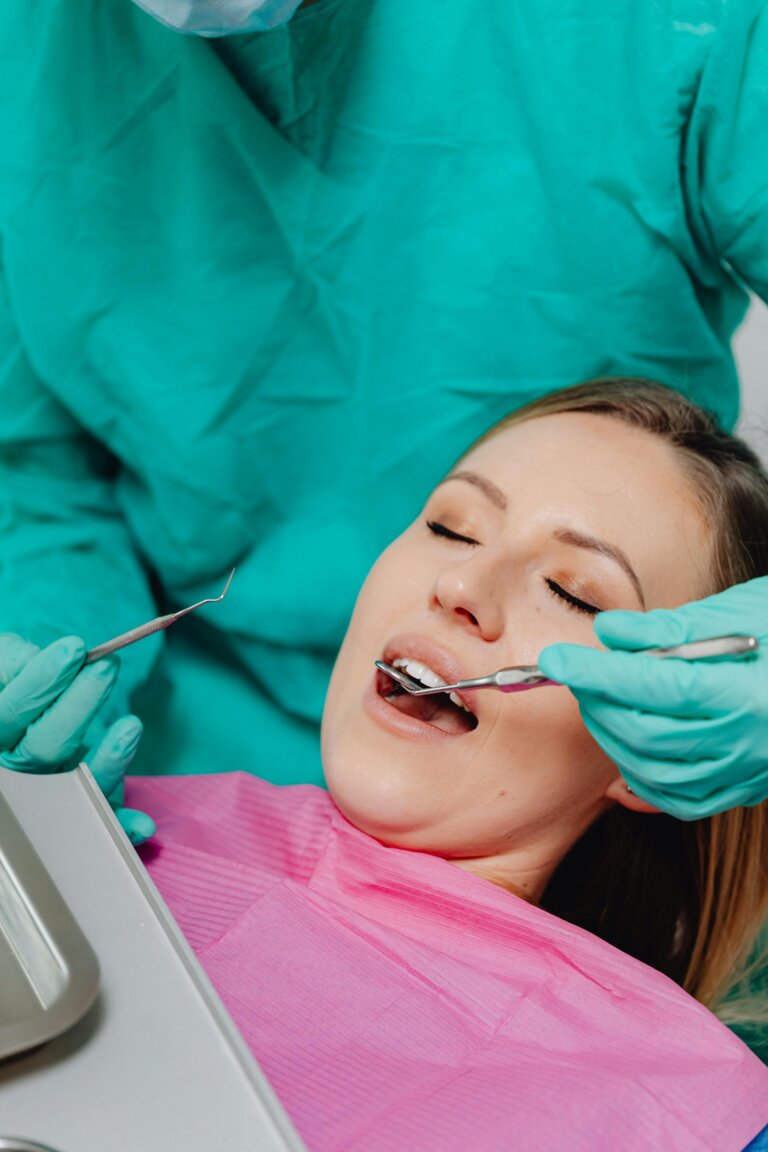If the thought of going to the dentist makes your heart race or your palms sweat, you’re not alone. Dental hypnosis offers a safe, gentle route to reduce that dread. With hypnosis for dental phobia, many people find relief-in person or via remote / online hypnotherapist settings. Whether you’re local in London or anywhere in the UK, this approach can help you reclaim calm and confidence.
Negative Past Experiences at the Dentist
Sometimes, past dental visits can leave a strong impression — perhaps a moment of discomfort or unease that the mind still remembers. With dental hypnosis, those memories can gently be reshaped, helping you approach future treatments with calm and confidence.
Fear of Pain or Discomfort During Procedures
It might not even be the drill — sometimes just the sound, vibration, or sensation can cause unease. Through dental phobia hypnosis, these responses can be gently retrained, helping you stay calm and comfortable during treatment.
Anxiety About Needles or Injections
Many people’s worst fear is the needle. (See our injections & needles page for a deep dive.) This is one of the biggest triggers in dental settings — not just for pain, but for loss of control.
Feeling a Lack of Control in the Dental Chair
Sitting back, opening your mouth, being unable to see — it can feel vulnerable. That’s often what the fear really is: not knowing what might come next.

Hypnotherapy works by guiding you into a calm, receptive state where your subconscious mind is more open to positive suggestions. Through hypnosis for dental phobia, you stay fully aware and in control, while gently retraining your mind to respond with calm instead of fear.
Recent work in hypnodontics — hypnosis applied in dental practice shows patients often report lower anxiety and greater willingness to attend necessary treatments. Lippincott Journals
Clinical reviews find that hypnosis is an effective adjunct to reduce dental anxiety, though it’s often mixed methodology and more studies are needed.(link)
Darren brings a warm, grounded style to treating dental phobia. He’s both a certified and qualified hypnotherapist who respects that fear is real, not something to dismiss. His focus is always private, compassionate, and tailored.
In London or via-remote sessions, Darren combines hypnosis for dental fear, relaxation methods, and desensitization exercises — helping you feel safe, in control, and gradually less reactive to dental triggers.

Hypnosis for alcohol addiction is a way to go deeper than just the habit itself. It works on the part of the mind that drives those cravings and reactions. With time, it can make urges easier to handle, help you swap bad habits for better ones, and give you more control. Many people also find they feel steadier emotionally and more confident as they move through recovery.
With hypnotherapy to stop drinking, the focus isn’t just on the habit. It looks deeper. Most of the time stress, emotions, or old beliefs play a part in drinking. When those start to ease, the urge feels lighter and it’s easier to find other ways to cope.
Stress, daily routine, or certain places can pull you back into drinking. Hypnotherapy to stop drinking can help take the edge off those triggers. The urge may still be there at first, but it doesn’t feel as strong. Over time, it becomes easier to make different choices.
Safe and non-invasive, hypnosis to quit drinking gives a way to handle alcohol dependence without side effects. It also supports recovery for the long term.
Through quit drinking hypnotherapy, you build more strength to say no to drinking, stay in control, and choose healthier options even when it’s hard.
Stop alcohol hypnosis helps you stay sober beyond the sessions. It supports lasting change and keeps healthier habits strong in daily life.
Every program adapts to your personal needs through hypnotherapy to reduce drinking, ensuring a tailored approach that targets your specific triggers and supports long-term success.


Hypnosis doesn’t replace good dental practice — it works alongside it.
In many clinics, hypnotherapy is offered as part of sedation or anxiety-management protocols (sometimes called hypnodontics). Lippincott Journals+1
Sessions are private, respectful, and paced to your comfort.
He’s seen it all-resistance, fear, breakthroughs — and knows how to guide people gently through.
He applies dental hypnosis, hypnosis for dental-fear, and hypnotherapy for dental phobia daily, tailoring to your specific triggers.
From London locals to remote clients across the UK, Darren’s work has helped many reclaim calm in the dentist’s chair.
Darren provides professional, private, and customized stop alcohol hypnosis if you’re prepared to make a change in your life.
Whether you want to reduce or stop drinking entirely, start using hypnotherapy for alcoholism. To start down the path to a healthier, alcohol-free future.
You can do this—and you don’t have to do it alone.
— Wolf TG, et al. (2022). A critical review of 19 clinical trials on hypnosis to reduce dental anxiety/fear.
PubMed
— Zappalá I. S., et al. (2025). A study showing that hypnosis significantly reduced dental anxiety in a university clinic setting.
PubMed
— Facco E., et al. (2014). Hypnosis used in dental settings to help with anxiety, sedation, and cooperation during treatment.PubMed
— Ramírez-Carrasco A., et al. (2017). Found that adding hypnosis to usual management techniques lowered heart rate during anesthetic infiltration.
PubMed
— Glaesmer H., et al. (2015). Patients who received hypnosis during tooth removal had significantly lower anxiety than those who didn’t.
PubMed
— Moore R., et al. (2002). Over 3 years, hypnosis, group therapy, and desensitization were compared; hypnosis helped many patients resume regular dental visits.
PubMed
— “Scientific Evidence for the Effectiveness of Hypnotherapy” — covers how hypnosis can support anxiety, phobias, behavioural change, etc.
Hypnotherapy Directory